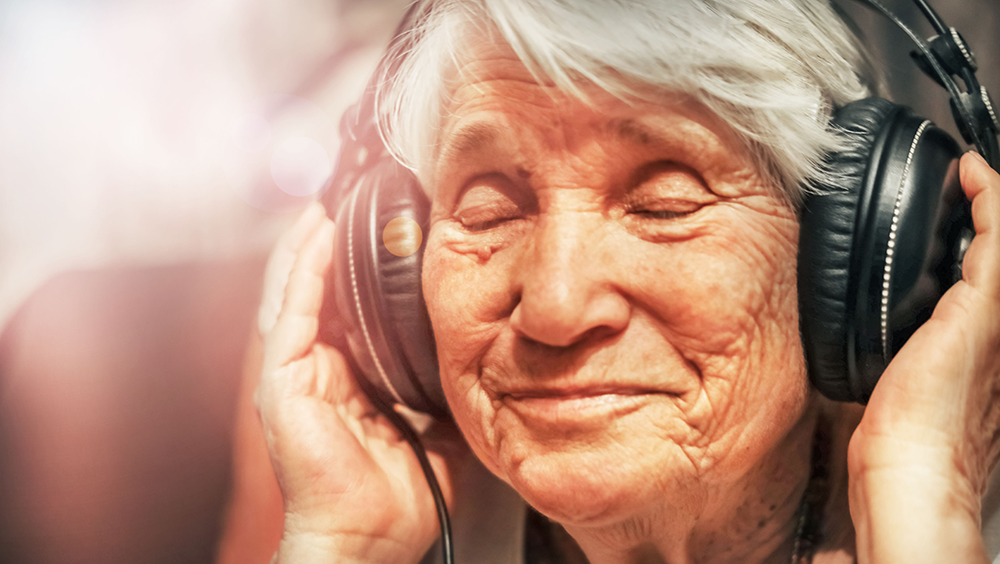
Music is a fundamental part of what makes us human. As babies, long before we string together sentences, we learn to hum a melody. It speaks to our emotions, stirs memories, and even shapes our social bonds. And music stays with us, even if our other memories begin to fade away. This is precisely why music is such a powerful tool to help seniors experiencing Alzheimer’s or other forms of dementia.
Unlocking the Power of Music Therapy in Dementia Care
Why Music Works in the Brain
The power of music therapy for seniors with dementia lies in its unique ability to bypass cognitive decline and tap into the brain’s innate musicality. Unlike language, which can become fragmented in the later stages of dementia, musical memories are often deeply embedded – woven into the very fabric of our being. Familiar tunes can spark a kaleidoscope of emotions, transport us back in time to happy moments, and even trigger dormant language centers.
This powerful connection isn’t just sentimental – it’s rooted in the brain’s remarkable architecture. Music processing engages multiple regions simultaneously, from the sensory cortex to the limbic system, the seat of emotions. This broad activation stimulates dormant neural pathways, creating new connections and boosting cognitive function. The rhythmic nature of music also provides a sense of structure, grounding individuals in the present moment and easing the anxieties that often accompany dementia.
How Music Helps Residents in Memory Care
Music is a universal language, a mood setter, and in memory care settings, it’s a powerful tool for well-being. Research backs it up: studies show music sparks positive changes in the brains of Alzheimer’s patients. But beyond the science, here’s how music makes a real difference for our residents:
- Calms the Jitters: When worries and anxieties bubble up, a happy tune can be the perfect antidote. Music soothes frazzled nerves, lifts spirits, and even helps redirect strong emotions before they boil over.
- Gets Us Groovin’: Music isn’t just for listening, it’s for moving! Whether it’s tapping a foot or swaying in a chair, music makes our residents feel lively. And that’s not just fun, it’s good for them too! Moving keeps bodies healthy and minds engaged, plus it can turn into a social dance party in no time.
- Communicates Beyond Words: When words get lost, music speaks volumes. For seniors with communication challenges, music offers a powerful way to express themselves and connect with others. A familiar song can spark a smile, a shared memory, or even a spontaneous hum-along.
- Redirects Attention: Memory disorders can make staying focused tough. Music, however, is like a friendly attention magnet. It draws residents in and keeps them engaged, whether it’s singing along, tapping a beat, or simply enjoying the vibe. We even use familiar songs as cues for daily routines, like winding down for bedtime or gearing up for a morning walk.
Music therapy is more than just entertainment – it’s a bridge between past and present, a language that speaks to the heart and mind even when words fail. Music brings joy, sparks creativity, and improves the quality of life for seniors experiencing memory loss, all within the nurturing environment of memory care communities. Want to see the power of music in action? Join in a music-based activity at one of our Memory Care Communities near you.



